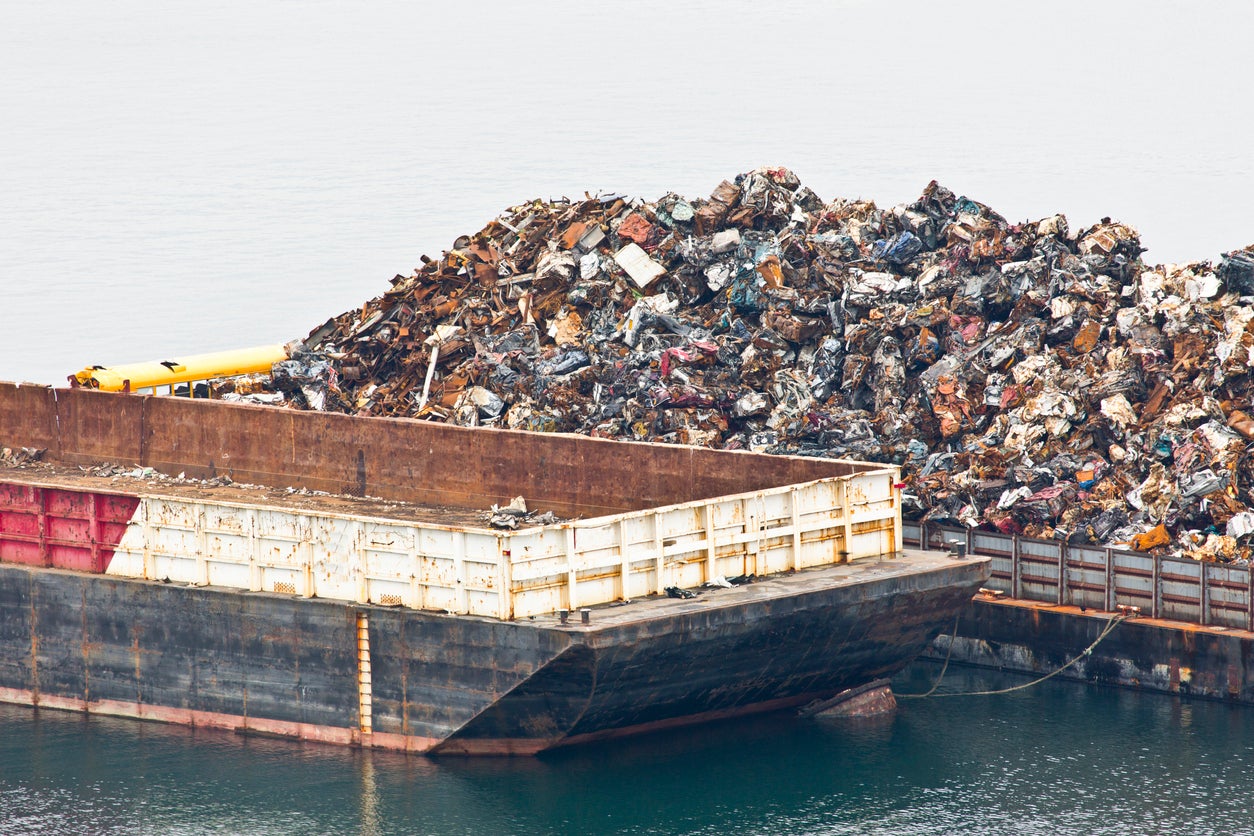The government needs to urgently ban waste exports to other countries
Please send your letters to letters@independent.co.uk

The UK, a major contributor to the world’s plastic crisis, produces more plastic waste per person than any other country except the USA.
Britain’s recycling system isn’t working. I am concerned by the government’s complacent attitude to address the problem. Our waste is reportedly overwhelming other countries’ recycling systems causing serious harm to their citizens and environment. Especially if Greenpeace’s evidence of illegal dumping and burning of UK plastic waste in Turkey, is anything to go by.
Turkey is the latest country to ban the import of most plastic waste, and the ban will come into force on 2 July.
The UK government needs to urgently ban waste exports to other countries, including to members of the Organisation for Economic Co-operation and Development, in order to end dumping plastic waste that passes for recycling.
The UK government needs to drastically cut the amount of plastic produced. Reducing single-use plastics by 50 per cent by 2025 allows the UK to end waste exports, and will therefore mean less plastic going into incineration and landfill. The government must commit to this 50 per cent target, with a clear plan for delivering it.
We need urgent action, not words, to end the plastic crisis.
Jeannette Schael
Tadley
Animals for food
Surely we cannot condemn Steve Bouquet for slaughtering cats when we slaughter animals for food?
The most humane animal slaughter still involves terrible fear, suffering and distress, not to mention all the suffering the animal endures beforehand.
All slaughter involves taking the life of an innocent being for the sake of palate pleasure.
Going vegan stops this.
Mark Richards
Brighton
GP doors open
If we do open up on 19 July I hope that our GPs will enter into the spirit of things and open up their doors to us all again. During Covid many GPs have kept their doors firmly closed, deciding when and how they will play their role in primary care. No longer can you get an appointment unless you explain in detail your ailment, only to access a less than perfect triage system where the doctor will eventually decide if they will see you.
If you are articulate and able to access electronic or telephone-based systems, and you are persistent you may get to talk to or see a practice-based doctor. Many people with vulnerabilities, for example being hard of hearing, or those without internet access, are now finding it impossible to gain access to their GP. Using the 111 service is a poor alternative and often refers you back to your GP anyway.
Many surgeries, including my own, did not participate in the vaccination programme. When everyone else in the NHS and public health was “going the extra mile” many GPs seemed to be keeping a very low profile.
It is therefore unsurprising that A&E departments are overwhelmed. I look forward to seeing the doors of my GP practice open again soon.
Anna Taylor
Address supplied
Government scandals
I agree with Andrew Grice that Tory scandals and flouting of the rules will indeed one day come back to haunt them. It is correct to surmise that in a national emergency, the government will be gifted an inordinate amount of slack, but it is time-limited.
Most people do not want to wake up every morning to yet more revelations of some transgression by a member of the government. The “Nolan principles” for public life are there for a reason and not to be circumvented, likewise the ministerial code.
The public is still somewhat discombobulated by the pandemic, even if the vaccine rollout is proving a major success. They will I feel in time rise up and state loud and clear “enough is enough” and then there will be a reckoning for the government which appears to stick by some rules and disingenuously not others, to the detriment of its probity and credibility.
Judith A Daniels
Norfolk
Plastic in clothing
Plastic packaging is visible to everyone yet most are unaware of the plastic used to make their clothes, its intrinsic link to the climate crisis, and its impact on plastic pollution.
The UN reports that some 60 per cent of all material made into clothing is plastic. More than a third of all microplastics released into the ocean derive from these synthetic fibres.
An estimated 70 million barrels of oil are used each year just to make polyester, reported the BBC, with its production releasing up to three times more carbon than natural materials. Just by washing our clothes we flush millions of microfibres into our oceans with each load. Just by wearing our clothes we shed and inhale countless invisible plastic particles.
The public deserves to know the truth about plastic’s proliferation in the fashion industry. Many people care about the plastic crisis but are totally unaware that their clothes are adding to it in such vast quantities. They deserve transparency.
In Europe, labelling systems are being rolled out that show where hidden plastic is present in some single-use items. If the government is serious about tackling the plastic crisis, it must take this a step further and apply it to textiles.
Campaign group A Plastic Planet believes the plastic used in fashion must urgently come out of the shadows. That’s why today we’re calling on the government to introduce a clear labelling system that shows where plastic is present in clothing and accessories.
Sian Sutherland
Co-founder, A Plastic Planet
Join our commenting forum
Join thought-provoking conversations, follow other Independent readers and see their replies
Comments